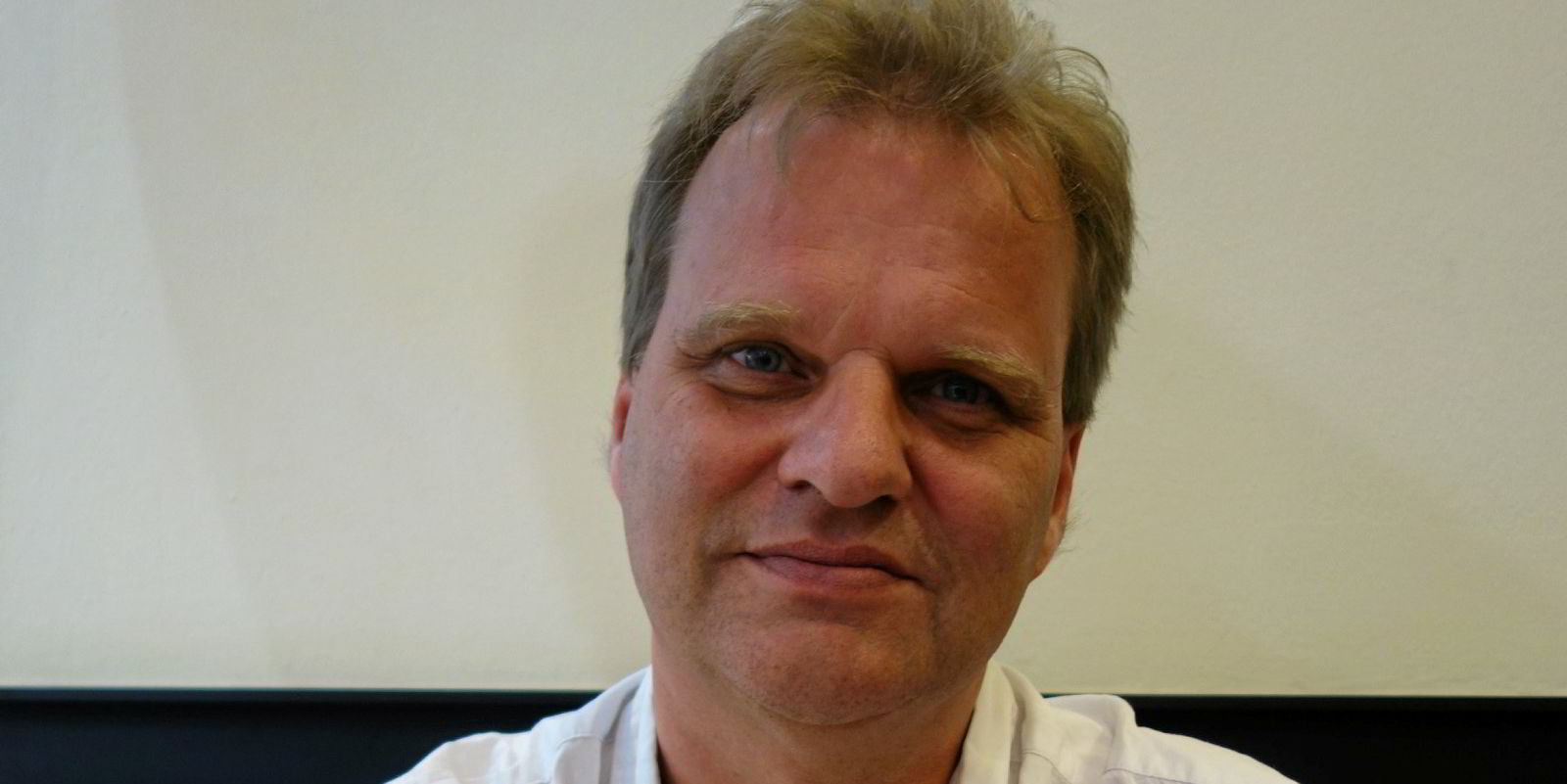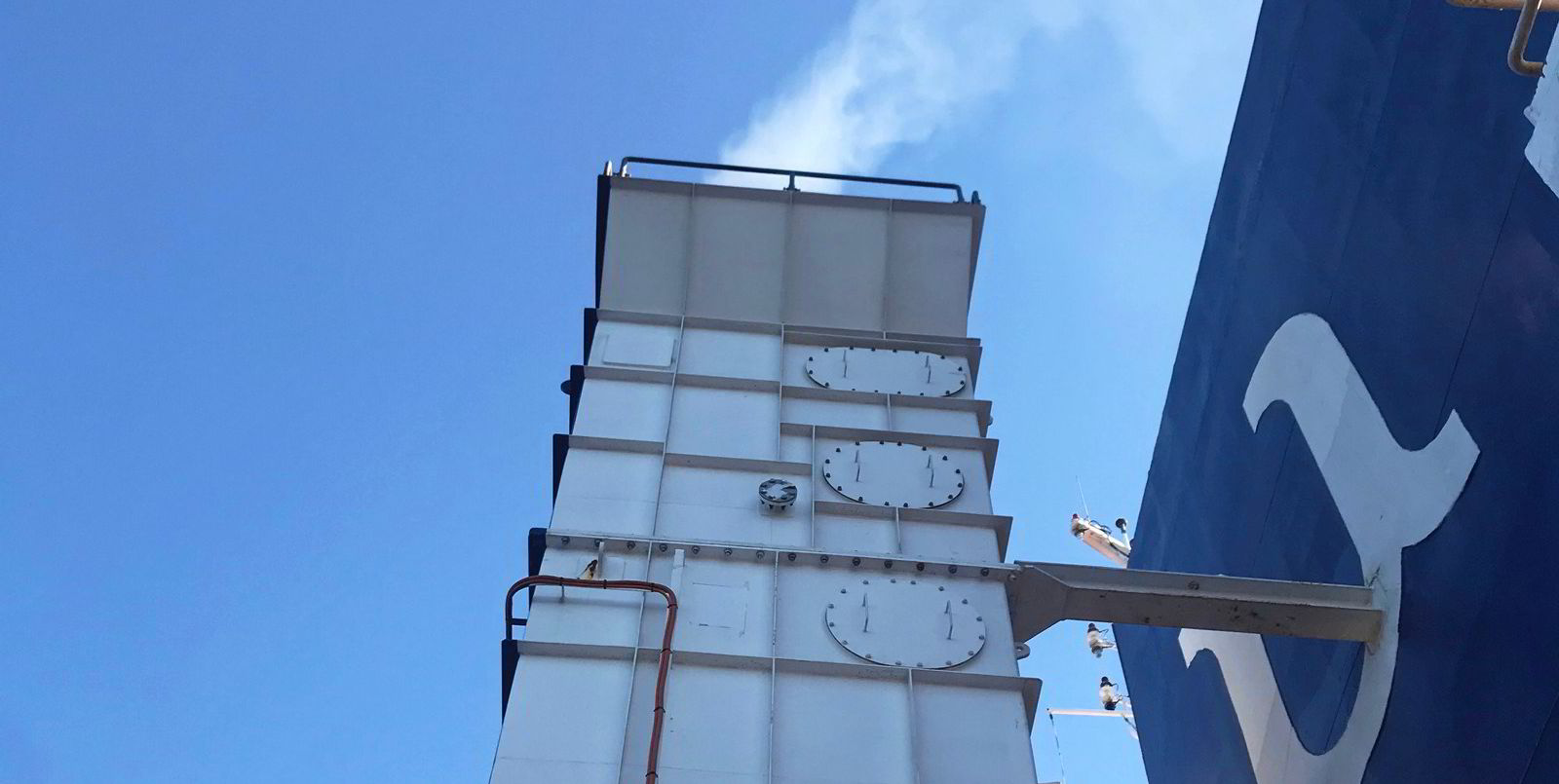Scrubber maker Bjornar Feen, founder of Feen Marine, has lost in his Oslo court battle to stave off the freezing of his assets.
In an 8 March ruling, the Oslo District Court found in favour of his Swedish former partners Viking Engineering and confirming the preliminary arrest order that it issued in January on some NOK 87.4m ($9.75m) in Feen’s Norwegian assets.
Feen has also been ordered to pay Viking some NOK 1.2m in legal costs.
Feen did not immediately respond to telephone calls and an electronic mail message. In February, he told TradeWinds that his ship-equipment business would not be affected, as the claim is against him personally and not his company.
Viking, a Singapore-based company controlled by Bo Johansson and Sune Andersson, had already won an order from the High Court of Singapore in February 2018 for the forced buyout of its share in Viking Inert Gas (VIG) and another Singapore court order in November 2020 for the freezing of Feen’s assets.
Despite the success of Viking’s arrest on Feen’s assets in Norway, Singapore and Norway have no treaty for mutual recognition of civil court judgments, so Viking must still relitigate the case in Norway or succeed in its application to have the Singapore judgment recognised.
But pending such a decision, the new order means Feen’s Norwegian assets are frozen with no deadline set for Viking to bring suit in Norway.
In its fresh order, the Oslo court pointed to Feen’s actions after he lost his case in Singapore and found that they indicated a likelihood that he would dissipate his assets and make it impossible for Viking to collect on a future Norwegian court judgment.
After the November 2020 Singapore freezing order, Feen moved his assets from Singapore to Norway and transferred ownership of his companies to his son, Nicholas Feen.
“The court does not find a basis to hold that Feen will act in a different manner in relation to assets located in Norway,” wrote judge Ole Christian Wenstop Sorensen.
With reference to Feen’s family residence in Indonesia, he found that “Feen’s connection to Norway must be regarded as somewhat attenuated.”

“The economic situation Feen now appears to find himself in gives grounds to fear that this can influence his disposition of assets in Norway, with consequences for Viking’s chances to cover [a future Norwegian court judgement],” the judge wrote.
Viking’s claim against Feen is based on its 30% minority stake in VIG, a separate entity from Norwegian and Indonesian-based Feen Marine.
In September 2013, Viking sold Feen 21% of its 51% holding in VIG. As the new majority owner, Feen agreed to stop using the name Viking and changed the company name to Feen Marine. The agreement also gave Viking a right of first refusal in case Feen sold their former shares in VIG.
But instead of changing the jointly-owned company’s name to Feen Marine, Feen set up an organisation of his own under that name and transferred his shares in VIG to it. Also allegedly transferred were contracts that belonged to VIG as he retired the old name.
In 2017, Viking brought the Singapore lawsuit, claiming Feen violated its minority shareholder rights and did not keep it informed about the company’s business.
The name Viking Inert Gas is currently in use by Viking for its relevant product line, according to the Viking website.
Feen’s present company Feen Marine is unrelated to another scrubber manufacturer he founded, Feen Marine Scrubbers, which was later bought by John Fredriksen, renamed FMSI, and merged into today’s Clean Marine.




